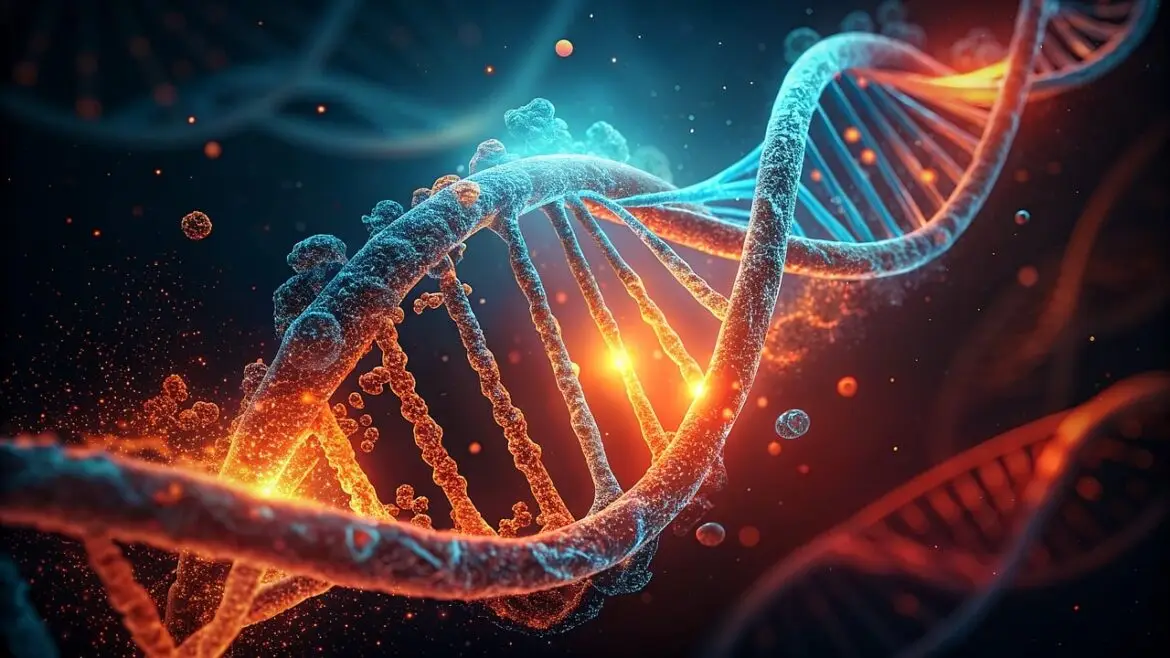While 2024 was a year of global upheaval, we saw unprecedented advances in science. From hidden oceans on Saturn's moons to deciphering the brain of a fruit fly, this year's scientific discoveries pushed the boundaries of human knowledge. Some are small steps that could lead to revolution, while others are already major breakthroughs. So what did we learn about the world, life, and the universe in 2024?
Hidden oceans on the moons: We're not so special in space
For decades, Earth seemed to be the only place in the solar system with liquid water, but new discoveries in 2024 suggest that vast oceans may be hidden beneath the seemingly frozen surfaces of many of Saturn's and Uranus' moons.
While we've known about the ocean beneath the surface of Europa (Jupiter's moon) for a long time, this year scientists discovered possible signs of subsurface oceans on moons as well. Mimas (Saturn) and Miranda (Uranus). These discoveries suggest that conditions for life – at least in microbial form – may be much more common in the solar system than we thought. NASA has already launched a mission Europa Clipper, which is to verify the habitability of these mysterious worlds.
Fruit fly brain map: Small creature, big knowledge
Although it may not seem like it, the fruit fly brain Drosophila melanogaster is an incredibly valuable source of information about the workings of the human mind. In 2024, scientists succeeded for the first time completely map the brain of an adult fly – including more than 50 million connections between 140,000 neurons.
This milestone in the so-called cerebral cartography offers new answers to old questions: What is a thought? How is memory formed? How do complex behavioral processes work? Although the human brain is much more complicated, it is thanks to these "simplified models" that scientists are getting closer to understanding its basic principles.
Climate Rubicon: 1.5°C is crossed
Although it may not have come as a surprise to many, an important climate milestone was reached in 2024. The global average temperature for the first time exceeded the limit of 1.5°C above pre-industrial levels – a goal that was supposed to be the maximum under the Paris Agreement.
This point does not mean an immediate collapse, but it is a clear signal that The climate crisis is taking an irreversible turn.Every additional hundredth of a degree increases the risk of extreme weather, drought, flooding, or ecosystem collapse. The discovery is a warning – perhaps a dark one, but all the more important.
Aging comes in fits and starts.
We knew we would age gradually, but in 2024 scientists discovered that The human body ages in two distinct waves. – around the age of 44 and 60. A study based on biological samples from more than 100 volunteers showed that these age stages are accompanied by significant changes in metabolism, immune system, or fat and alcohol processing.
It's not just a subjective "feeling older", but biochemical breakdowns, which can explain sudden health problems, decreased energy, or changes in the body's responses. This knowledge can help in the prevention of aging and personalized medicine.
Stardust from the asteroid Bennu: Where did life begin?
More than four years after the mission's return OSIRIS-REx scientists have finally managed to analyze sample of asteroid Bennu, from which they obtained valuable data on the origins of the solar system. Asteroids like Bennu contain the original building blocks of planets – and perhaps even life.
The samples showed presence of prebiotic molecules and amino acids, which may have played a key role in the origin of life on Earth. There is also evidence that the asteroid came from geologically active world, which may have long since disappeared. Scientists have only examined 1 % of material so far – and they are already rewriting textbooks.

AI deciphers the shape of all known proteins
Artificial intelligence may be a cause for concern, but 2024 has shown its enormous benefits for biology. Model AlphaFold2 from DeepMind proved predict the structure of all known 200 million proteins, which is a breakthrough in understanding how diseases work and developing drugs.
For this contribution, the scientists received the Nobel Prize in ChemistryThanks to AlphaFold, new possibilities are opening up in the treatment of Alzheimer's disease, antibiotic resistance, and vaccine development. This AI has shown us that Understanding life means deciphering its molecular foundations. – and that's where technology can be a huge ally.

Introducing the quantum world: record-breaking particle entanglement
In 2024, scientists achieved something that sounded like science fiction a decade ago: they quantum-entangled a record number of particles over distances exceeding hundreds of kilometers. This phenomenon, known as quantum entanglement, means that two particles behave as “one body,” no matter how far apart they are. Such experiments are the basis of future quantum networks—ultra-secure communication systems that cannot be eavesdropped on or broken by conventional methods. This technology could completely change the way we approach data security, diplomacy, and military operations.
Synthetic blood saves lives in trials
Another breakthrough has been made in medicine. After years of development, scientists in France and Japan have successfully tested a synthetic blood substitute that can carry oxygen as effectively as human red blood cells. In crisis situations, war zones or when there is a shortage of donors, this artificial blood could literally save lives. The first clinical trials were conducted without serious side effects and scientists are already preparing the next phase of research, this time on patients with massive blood loss. Synthetic blood could become a revolutionary tool in first aid and hospital care.
The microbial world deep under the ocean
In March 2024, a team of researchers from Norway and the USA discovered new species of microbes in hydrothermal vents in the depths of the Atlantic. These extremophile organisms live in complete darkness, at temperatures over 100 °C, under enormous pressure and without access to oxygen. Interestingly, many of them have unique metabolic pathways that could serve as a model for artificial photosynthesis or energy production. The discovery also supports the theory that similar life could exist on moons like Enceladus or Europa – where there is water, volcanism and darkness.
The brain under the microscope: the first model of consciousness?
In December, an international team of neuroscientists announced that they had succeeded in creating a software model of consciousness in the laboratory based on neural signals simulated using AI. This model was able to recognize a stimulus, create a response, and store the experience in a memory system – three basic features of primary consciousness. This is not yet consciousness in the human sense, but rather a functional basis from which neural networks capable of self-learning, evaluation, and even introspection could one day emerge. Although the research is only in its early stages, its ethical and philosophical implications will increasingly resonate in the social debate.
The year 2024 was an exceptionally rich one in science. From the mysteries of the depths of space to the workings of our bodies to the intelligent tools that help us understand the complexity of life – each discovery brought new questions and hope. The future is uncertain, but thanks to science, we can understand it a little better – and influence it.




